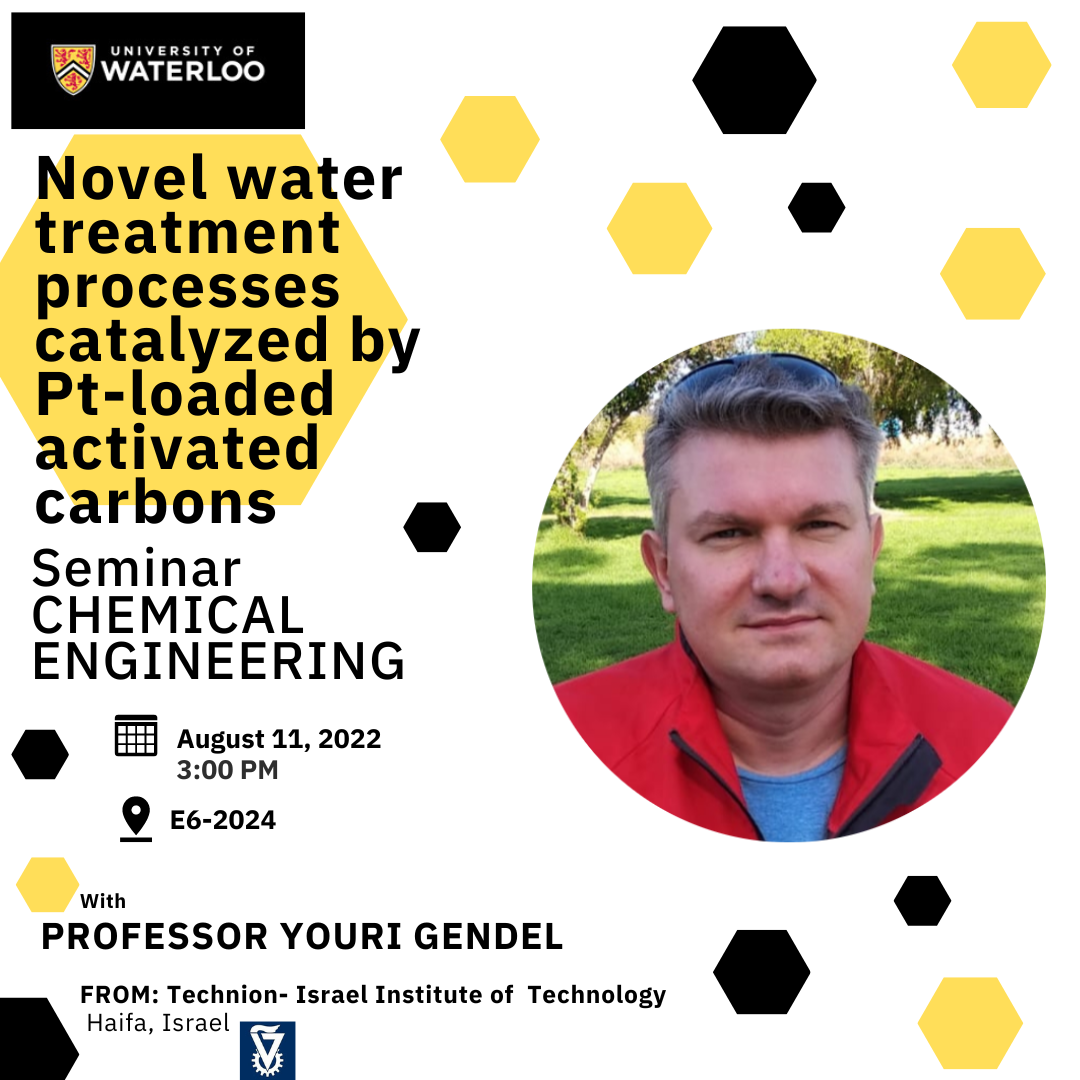The Chemical Engineering Department is hosting a special graduate lecture on Novel water treatment processes catalyzed by Pt-loaded activated carbons.

Biographical Sketch
Dr. Youri Gendel completed all his BSc, MSc and PhD studies at Technion. After 3 years of postdoc research at DWI - Leibniz Institute for Interactive Materials (Aachen, Germany), Dr. Gendel joined Technion as an Assistant Professor in 2015. His research interests cover environmental electrochemistry, physico-chemical processes for water and wastewater treatment, and energy conversion and storage. Dr. Gendel teaches both undergrad and graduate courses, including Water and Wastewater Technologies, Environmental Electrochemistry, and Solid Wastes Management.
Abstract:
Activated carbon and platinum are well-known in water treatment and catalysis. Their combination, i.e., the Pt-loaded carbon is probably the most widespread catalyst in fuel cells and chemical processing. In spite the long history of research and applications these materials still have plenty of fascinating undiscovered abilities that can make our environment cleaner. In fact, the Pt/AC can be the solution for very urgent challenges to our society: persistent contaminants, drinking water scarcity, depletion of minerals, and increasing amounts of electronic wastes (e-waste).
The electrochemical capacitive-Faradaic nature of the Pt/AC particles can be used to separate ionic species from water and wastewater. The processes utilize only water, and electricity. The treatment can be done at zero-discharge of secondary pollutants. Furthermore, the Pt-loaded activated carbon is 100% selective for the recovery of high value metals from wastewater and e-waste leachates. Homogeneous advanced oxidation processes that utilize hydrogen peroxide and persulfates are outstanding in degrading persistent pollutants, but their implementation is impractical due to toxicity of metallic catalysts and residual oxidants. These issues can be easily fixed using Pt/AC catalysts. Separation of nitrate, perchlorate, phosphate, chlorides ions, and many other operations can be done using the “well-known” activated carbon and platinum catalysts.
The lecture focuses on the electrochemistry and practical considerations of the above-mentioned emerging water treatment processes that utilize Pt/AC catalysts.